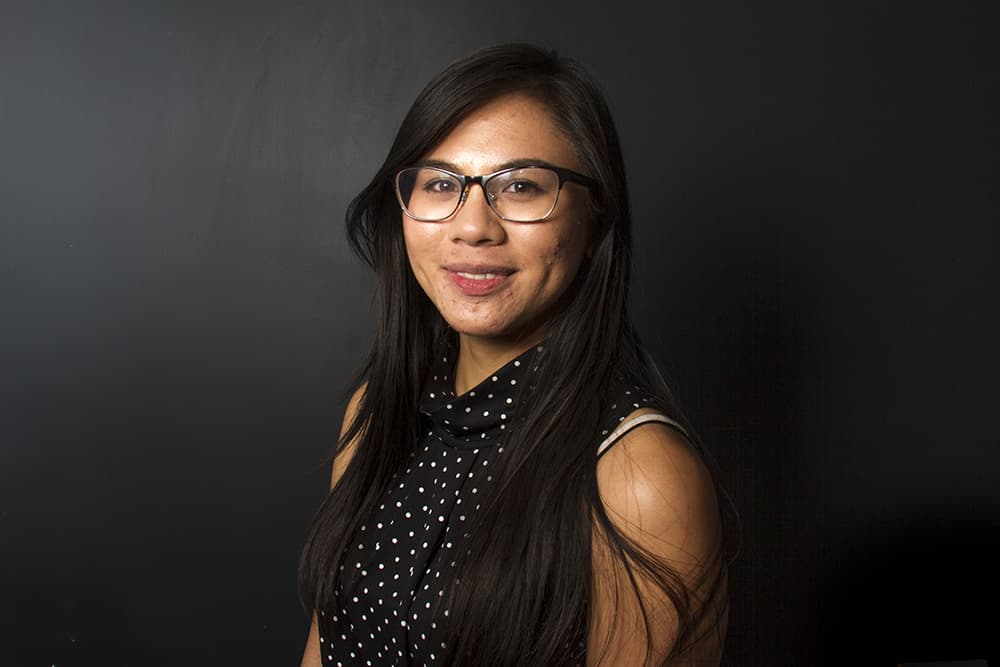
Cheska Mae Perez found an open envelope in her family’s living room one day in 2014. The 16-year-old knew the logo well -- it was a letter from the federal agency she’d been thinking about for years.
“I’m a very curious person. I snoop a lot,” she said. It was dated from two weeks earlier, so she knew her father had already seen it. “I opened it up when no one was there -- I read it.”
And then she collapsed on the floor, weeping, the document still in her hands. The government had turned down their application for permanent residency in the United States. Her family, which had come from the Philippines on a work visa early in the 2000s, would be put on track for deportation.
Perez, a promising young programmer and the highest ranked student leader in her school’s JROTC program, was officially undocumented.
She’s part of a stranded generation, one of at least 17,000 Colorado residents who arrived in the United States as children and now lack legal status.
President-elect Donald Trump has directly threatened to revoke one of the few protections they’ve gained, known as Deferred Action for Childhood Arrivals (DACA). DACA, an executive order issued by President Barack Obama, allows certain young people to apply for work authorization and some degree of protection from deportation.
Seven young, undocumented immigrants spoke at length to Denverite as Inauguration Day approached.
Many were raised to be silent, for their own good -- but instead they have become an advocate generation. Now, what they face is “to have Eden taken away from you,” Victor Galvan said. “It’s to be kicked out of Eden.”
Some of the people we interviewed are deeply involved as advocates -- Galvan and Juan Gallegos both work for Colorado Immigrant Rights Coalition -- while others stay on the edges of activist circles.
All are young professionals or students, racing to establish their lives under DACA's temporary protections. Without it, they could lose their jobs or even be deported. All of them agreed to have their full names printed, though, and all saw their telling of their stories as a kind of activism.
Together, they described a radical change in the way undocumented immigrant communities live in Colorado and across the United States, from arrival to adjustment and advocacy. These are their journeys.
Arrival
As a rule, anyone who qualifies for DACA arrived in the United States before they were 16 years old. Most come from Mexico, and the state of Chihuahua is particularly well represented in Colorado.
Many of these young immigrants came with their parents for jobs, bypassing the legal immigration process as rapidly changing rural economies turned their homes upside down. Others came alone, fleeing violence or abuse.
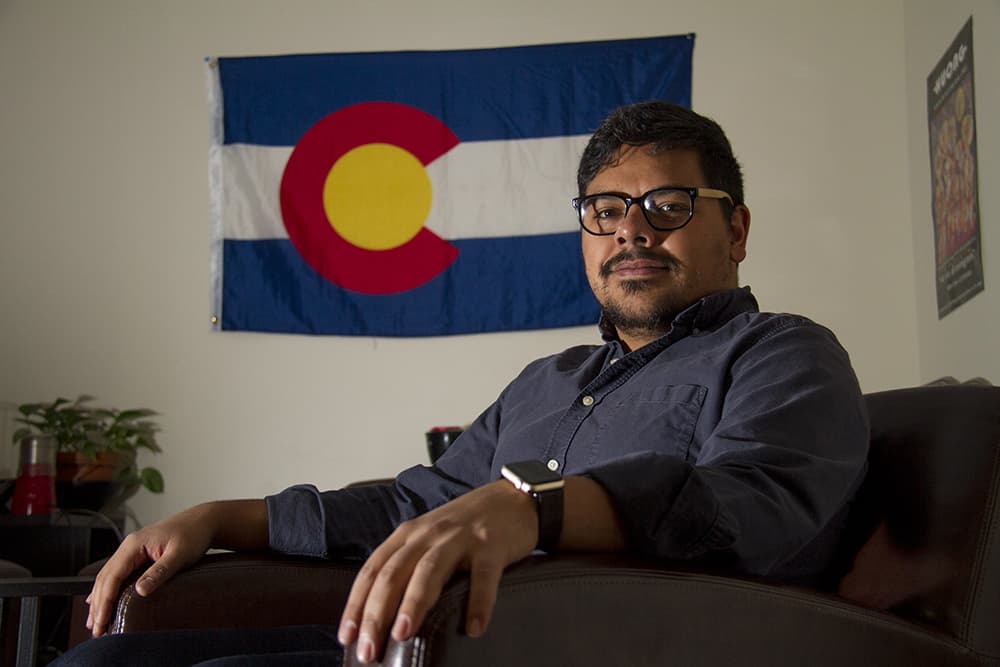
Juan Gallegos
“My dad owned his business in Mexico for most of his life,” Juan Gallegos, 27, said in an interview at his office.
“He distributed cheese and deli products from the plains up to the mountains in the state of Chihuahua.”
He sold mostly to farmers who subsisted on corn sales. And when the corn business changed, so did life for Gallegos. Gallegos traces it to the North American Free Trade Agreement. Just as some manufacturers have fled to Mexico, a flood of U.S. corn reportedly has forced millions of Mexican people out of farming.
“My dad, trying to make his business survive, decided that he was going to try to try an export model,” Gallegos recalled. “He was going to try to distribute up to the U.S. because those people … now were working up in the meatpacking plants in the U.S.”
And in 2001, when Gallegos was 12 years old, that meant crossing the border, with or without authorization.
Cheska Mae Perez
“A very common theme with families in the Philippines is that you have an overseas worker, because the economy in the Philippines is terrible,” Perez said. “I was four when my dad went. He worked for McDonald’s, for management … and they asked if he would consider employment in the U.S.”
Her father went first, and the rest of her family of seven followed two years later.
“My mom being alone, taking care of five children. It’s a lot. It was just a lot on my family -- we needed to consolidate into one place, and it was the U.S.”
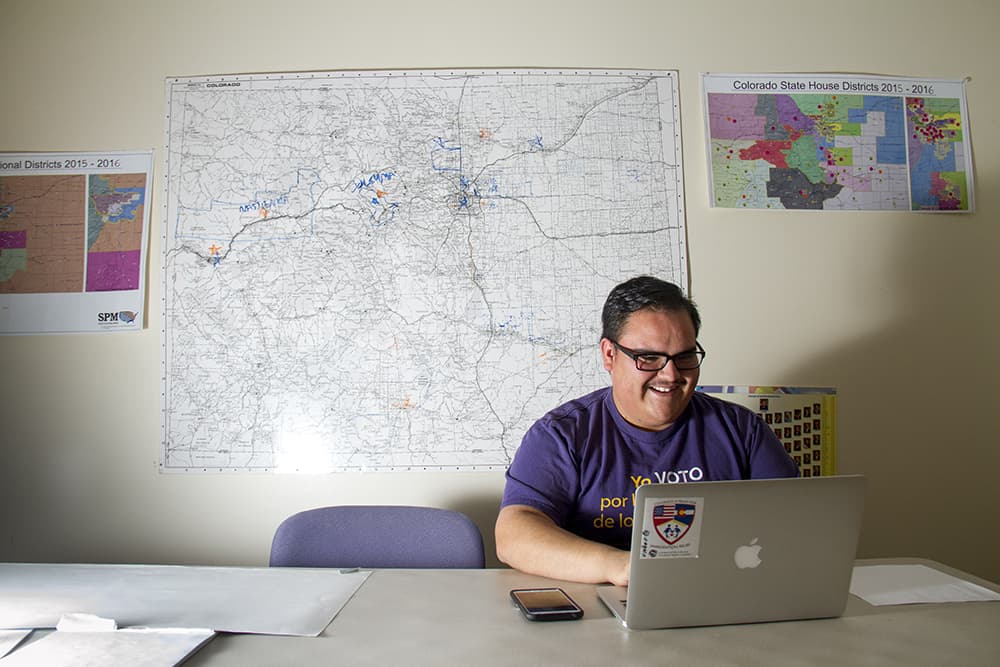
Victor Galvan
“I came when I was eight months,” Victor Galvan said. “There’s no path to citizenship for me. There’s not a right way to do it.”
He hasn’t lived since then in his family’s former home, Chihuahua. “I grew up here. I’ve been here my entire life.” And when people do go back and forth, it's for emergencies only, he said.
Bianca Acosta
Bianca Acosta’s family lived in the United States long before she made the crossing.
“My dad’s parents, they actually had residency in the U.S. My grandparents had residency,” she told me, sitting for an interview in her hip, thriftily remodeled mobile home off Sheridan Boulevard.
“They would come and work for six months” in the U.S., then return to the huge family house they were building in the northern Mexican state of Zacatecas, a place whose name she has to pause now to spell.
“My dad even came to school in the U.S., and my aunties,” she said. That cross-border connection died with her grandparents. They were shot to death, from what she knows, as they drove young Bianca to a hospital in the city of Fresnillo.
The place is a bloody battleground in Mexico’s drug wars now, but she witnessed a subtler change: Slowly, the farmers around her village stopped harvesting apples and peaches, she said, scaling back to beans and feed for cows.
“Most of us wanted something more, but we’d never been to the city, we’d never been exposed to anything,” she said. “We couldn’t even imagine going to high school.”
She fell into a drug-running gang at 13, she said, in part to escape her father. Burned out and alone by 15, she made the journey by herself.
The crossing “took a week, waiting on the floor,” she said. “The coyote told us, if you see the Mexican police guys coming, run so la migra [U.S. immigration authorities] can get you. The Mexican police get you, you’re screwed."
But she insists there was "no other option ... To get a visa, you need to have status. Your parents need to have money and bank accounts." In some years, demand for permanent residency can exceed the legally available supply by a factor of roughly 30.
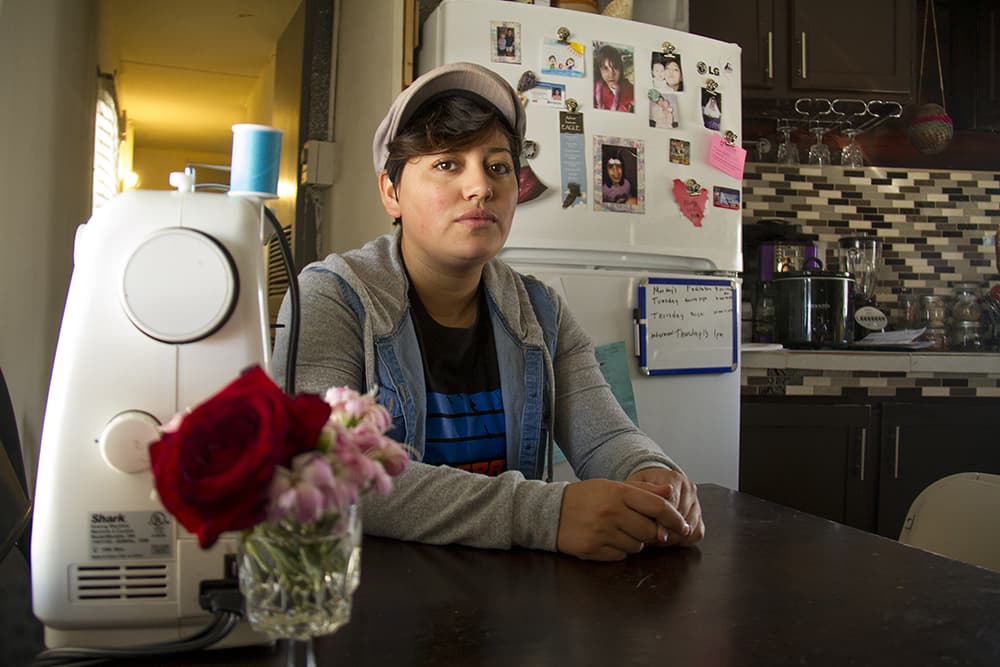
Adjustment
The reason people end up in Denver is usually simple enough: They know someone here. The West’s meatpacking factories and farms employ countless new residents. Often enough a young immigrant knows some aunt, uncle or cousin here.
Bianca
“I didn’t know my aunties. They live in Aurora, in a house, they had been here for years and years,” Acosta said.
“They gave me clothing and everything -- I was just, like desperate to get a job, because I needed to pay them back. I’d never been in a city that big before. Everyone spoke English -- I was pretty lost.”
But from the second she had arrived in the U.S., she "felt safe, for some reason. I just felt like I was so far away from all of that -- that I could start all over again."
Juan
Gallegos’ family moved first to Nebraska, where he got his first taste for politics as a seventh-grade newcomer who barely spoke English.
“There was this opportunity to run for student council vice president,” he said. “The campaigning was the fun part. I remember I put together a flyer -- it had my picture on it, and it said ‘I am Juan in a Million.’”
He swears he doesn’t remember whether he won -- but the campaign foreshadowed his work later in life as a campaigner for his and others' rights.
Victor
“It really started when I was young,” Galvan said. “Growing up, I realized that being undocumented was something that was going to affect me.”
You never talked about your status. You never talked about how you got here. And you certainly never put your signature on a document.
“You know I can’t sign this,” his mother would tell him. “You know we can’t do this.”
Report cards, permission slips for field trips -- none of it. He never gave up, but the answer never changed.
“Travel was out of the question. Anything that had to do with insurance, work,” he said. “Now I know: I could have taken those opportunities – now that we’ve actually dug in and challenged this system.”
Deportation, meanwhile, had divided the family. Galvan’s father was deported after the cops were called on a fight with one of Galvan’s brothers. One of his brothers was forced to follow.
Cheska
Perez was six years old when she arrived in the U.S. She grew up in California and Las Vegas, arriving in Colorado only last year.
Her family’s visas gave them legal status in the United States until 2007, when her father lost his job and the documents expired.
“I didn’t know what our situation was, but I knew it was precarious,” she said. It drove her to study the law starting at age 11, and even to read the 83-chapter adjudicator’s field manual of federal immigration policies.
The family applied for permanent residency, a long process during which they would be protected from deportation but without legal status. “Our livelihoods changed. We were limited,” she said.
This limbo lasted for years. As she studied more, she became more sure their request would be denied.
Yet her family seemed to talk little about it. As often happens in these stories, the elders saw little hope of a solution, instead staying silent and invisible.
Perez, though, wanted to go to West Point. “I knew I had to do something,” she said.
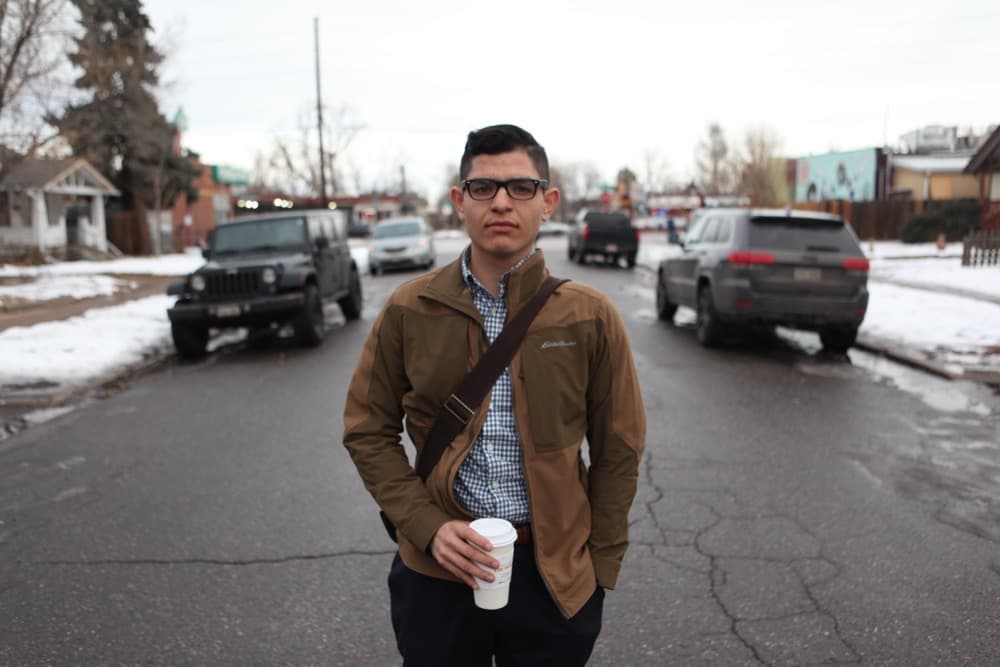
Marco Dorado
"Growing up, my family always said, 'A lot of these opportunities won’t be open to you, because you’re mojado -- you are wet," said Marco Dorado, 24, who arrived in the U.S. at age 2.
But he didn't realize the implications of being undocumented until his classmates in the International Baccalaureate at Thornton High School started applying for college.
As senior year approached, he "started understanding the severity of the issue," he recalled in an interview near his office at the University of Denver. Colorado hadn't yet passed its law allowing undocumented immigrants to pay in-state tuition.
He could walk away from his education, he thought -- but the renewed promise of legislative reform in 2011 gave him new hope. He started preparing for a future he hoped would come.
Awakening
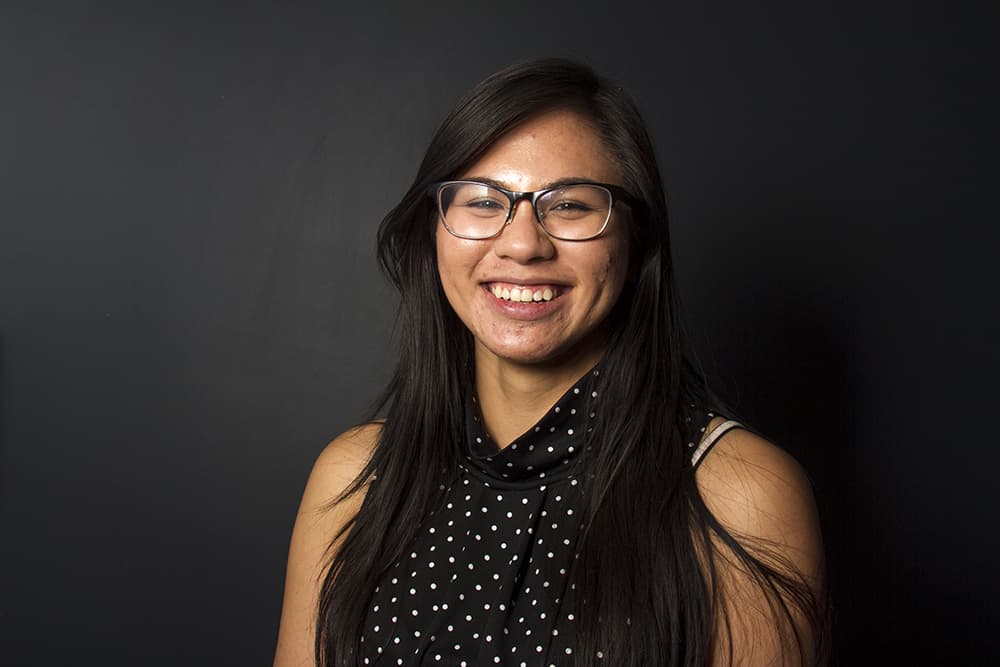
Cheska
Cheska Perez, like Dorado, felt her path diverging from her peers' as college came within sight.
"I just remember thinking, 'I'm not going to West Point,'" she recalled. (The military academy required citizenship for entry.)
She was "tumbling down ... Your college, your applications, your career -- being pressured to have a plan for your future ... and it just falls apart."
She went to her JROTC instructors. They had no idea she wasn't authorized to be in the country. As she cried, they told her she was "someone who's given a lot to the community," and that she deserved to be documented.
Feeling emboldened, she wrote emails to her representatives, and to the White House. "If I already told people about it," she figured, "why not just tell the world then?"
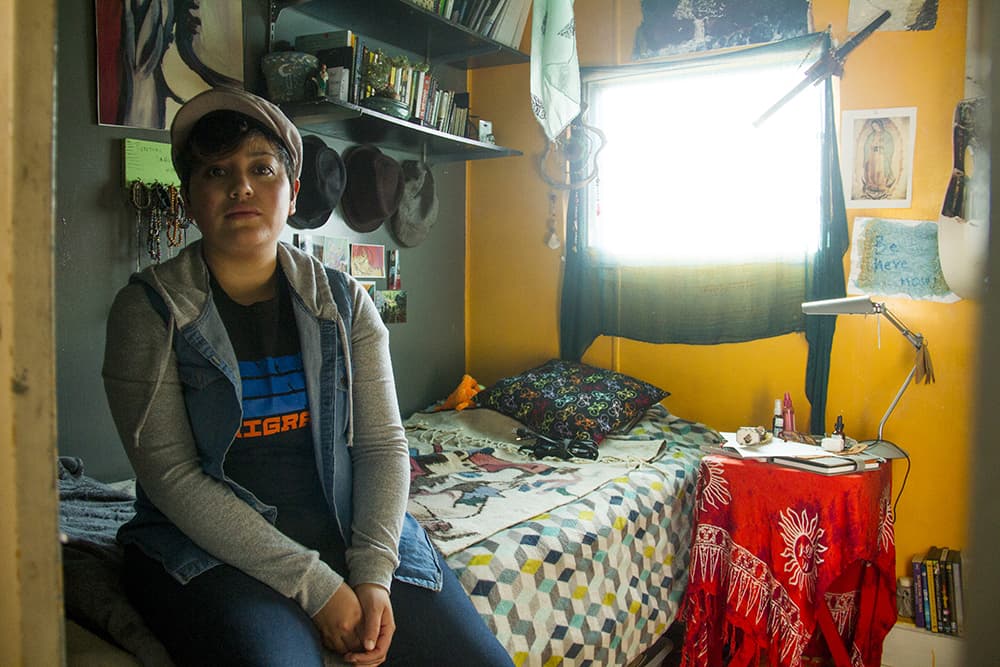
Bianca
Acosta had her daughter just after she turned 17. It was a rough road, including a move to California with the father to his family's house. She ran away from them, finding herself alone in a city park.
"That moment in the park, when I couldn't communicate with anyone, is when I knew I needed to learn English," she said.
She found the New America School, a campus that caters to immigrants and English-language learners in Aurora. She paid her bills by babysitting in north Denver, taking her daughter on a two-hour public transit commute each way, every day, before going to high school at night.
"My first English teacher, she just helped me gain self-esteem and accept myself. She started to tell not just me, but tell everyone that we are capable, that you're worth it -- stuff I had never heard," she said. One day, she herself would become an educator.
Victor
Galvan first saw the power of protest after 1,000 federal agents raided meatpacking plants in Greeley and in five other states, rounding up nearly 1,300 undocumented workers.
“The community just went berserk, and I remember radio stations and TV, and the news -- they just kept advertising this huge march,” he recalled.
More than 100,000 people marched in Colorado that day, including a huge crowd down Speer Boulevard. Even his mother, who wouldn’t even sign a permission slip, insisted on joining the protest.
“She told me go buy an American flag” from a vendor, he said. “I still have that flag to this day. I’ve taken that flag to every march for immigrant rights.”
The same day, then-governor Bill Owens signed Senate Bill 90, a now-repealed law requiring all local police officers to report suspected “illegal aliens” to federal authorities.
Eventually, the movement would inspire Galvan to come "out of the shadows" -- to tell his own story, and to push for the program that would become DACA.
Acceptance
Obama created DACA in 2012. Immigrant communities approached it with skepticism, but it offered a way to work -- an ID card, a temporary reprieve.
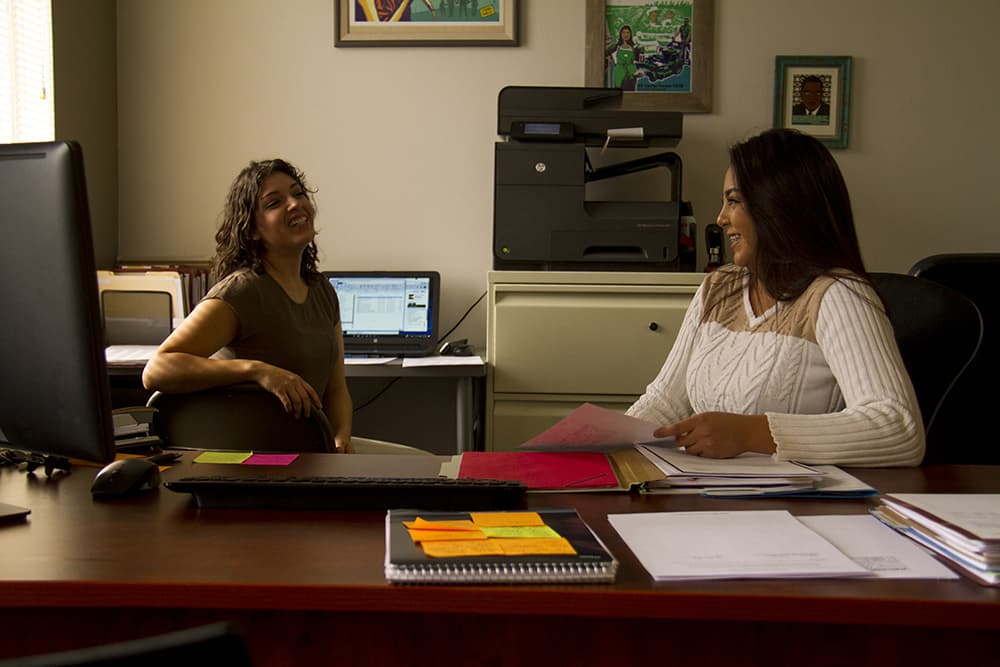
Gabriela Hernandez
Gabriela Hernandez, now 25 and an assistant paralegal, hadn't felt very compelled to go to college. What was the point, she asked, if she would have few professional options afterward?
But her parents insisted that something would happen -- and DACA did. She was approved in the fall of 2012, while she was attending community college. With her new status in hand, she transferred to Metro State University to pursue a bachelor's in international relations.
"Once I got DACA, I thought, 'Now it's on me to do it,'" she recalled. "I think getting DACA absolutely changed the way that I saw what I wanted to do ... It gave me a safety net."
Luz Ontiveros
"I think that it wasn’t until I got DACA that I started reflecting more on my status -- because DACA opened up a lot of doors for me," said Luz Ontiveros, also an assistant paralegal. "You just feel more empowered -- you feel like you have more opportunities."
Marco
Dorado had worked his way into CU Boulder by the time he got DACA status, earning a private scholarship to the prestigious state school.
With DACA, though, "I almost kind of lifted off personally and professionally," he said. His first order of business: a campaign for the student body presidency.
"I thought to myself, there really isn’t any reason I shouldn’t," he said. And the protection of DACA gave him the will to speak before hundreds of students. "I can only imagine the headlines -- Illegal immigrants run for student body government."
He won by 22 votes, running a progressive platform against what he describes as the fraternity ticket. Just a few years later, he works as the program coordinator for the Latino Leadership Institute at the University of Denver.
Cheska
Perez' act of advocacy -- her letters to the White House and her elected officials -- put her on a path to join DACA, which Obama had created in 2012. Her congresswoman, Dina Titus -- she was living in Nevada at the time -- would help her apply for the program in 2015.
It was strange to be dealing with U.S. Citizenship and Immigration Services, the agency that her family had feared for so long -- but it worked.
In fact, she was invited to watch Obama speak in Las Vegas about his planned expansion of DACA. Later, she'd volunteer for Hillary Clinton's campaign, and eventually the teenager worked as deputy data director for the coordinated Democratic campaigns in Colorado.
"I always say this to my friends: 'We're not political people, but our presence is political, so we have to be involved.'"
The election:

Juan Gallegos spent Election Day on the streets, urging people to vote because he could not.
"To me, it's like a holiday," he said. He was excited for a Hillary Clinton victory, seeing a chance to push for more permanent reforms and perhaps a chance at citizenship for more people.
"We were definitely not prepared for a Trump victory," said Gallegos, now the director of civic engagement and legal services for the Colorado Immigrant Rights Coalition. (He was not working for the nonprofit when he campaigned.)
"We weren’t prepared for it. There was no messaging ... There was no nothing."
And as the vote forecasts slowly tipped toward the Republican, who had long promised to end DACA and crack down on undocumented immigrants, "it felt like we were just caught, like deer in headlights."
"I was shocked at how naive I was about the outcome of the election," Dorado said.
"After the elections, I didn’t sleep," Acosta said. "I didn’t sleep all night ... I didn’t know how to wake up my daughter the next day and tell her he won. But I did. She cried. Nobody knows what it is to watch your daughter, a 9-year-old, crying because a new president was elected."
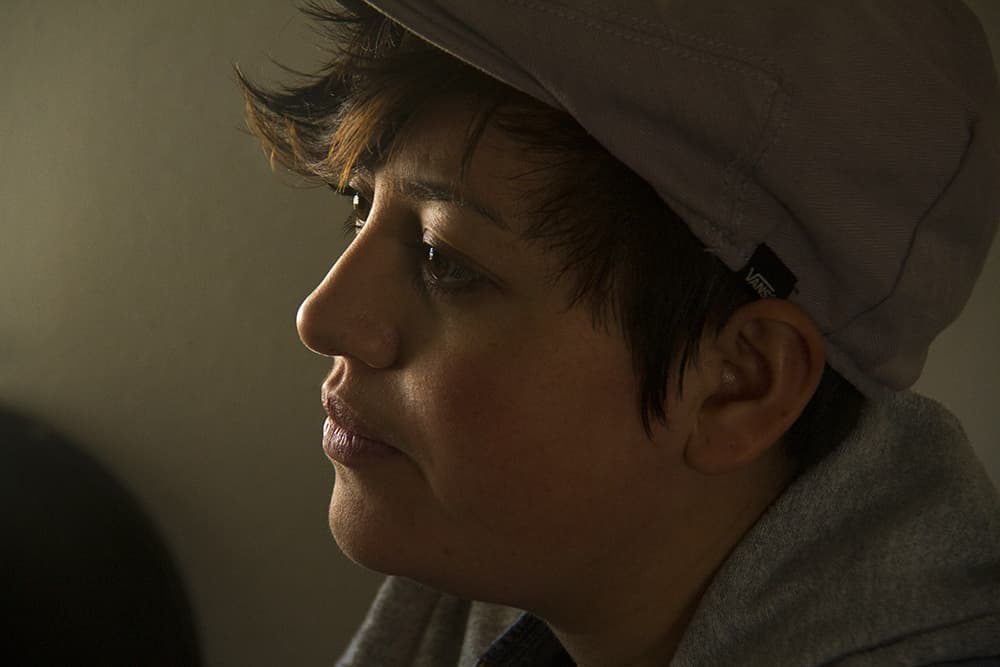
She's not sure what's next. If DACA ends, she might change her address. She couldn't go back to work for Denver Public Schools, she said.
For months, immigrant communities have closely watched Trump and his appointments, looking for signs of whether he'll move to fulfill his promise -- or whether a compromise like the newly proposed BRIDGE Act might extend their protections.
Meanwhile, all they can do is balance fear and hope and plan for the years ahead. They know that the government has all their information. They know that they are obvious targets -- and they wonder if Trump could really do it.
"The one thing that I don't want to happen again is to be caught off guard by Donald Trump," Galvan said. "... If you need to rage, rage. If you need to cry, cry. But let's make a plan for this."












